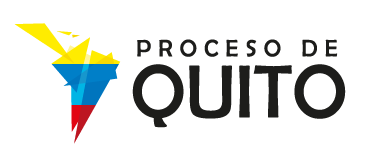Brazil's Pro Tempore Presidency's gamble
Three focuses on specific topics and a greater structure and methodology for the Quito Process are some of Brazil's main priorities for 2022.
By Isadora Zoni
Since assuming the Pro Tempore Presidency of the Quito Process in June 2021, Brazil has defined its priorities: to dedicate one semester to a methodological review and to include specific topics on the agenda. Its priority proposals cover the following topics:
Host communities
As recognized in the Global Compact on Refugees (GCR), the role of host communities is fundamental in the protection and integration of migrants and refugees. These communities should participate in the search for solutions and receive support, according to their contribution to integration and protection.
The Brazilian experience of articulation with actors at the local level, both at the border and in the cities involved in the internalization strategy, serves as a starting point to carry out a more consistent reflection on the theme and promote the development of projects that strengthen communities, civil society and the response of local governments. The "cross-cutting" theme will lead to a webinar in the first half of 2022.
Populations in vulnerable situations
The Quito Process already includes in its agenda the issues of children and adolescents, as well as refugee and migrant women and girls. The joint declarations also mention people in vulnerable situations. Now is the time to carry forward a structured discussion on specific groups that require specialized attention from the States of the region.
Informal discussions during the negotiations that led to the adoption of the Lima Declaration made it possible to identify indigenous populations, homeless people, people with disabilities and Afro-descendants as groups that have been mobilizing specific care policies in the countries of the region due to the specificities that affect their integration in each country. The exchange of information and the establishment of groups and networks will help strengthen these national responses, as well as give greater international visibility to these challenges.
A webinar in this regard will be part of the agenda for the first semester in 2022.
Youth
The demographic profile of the Venezuelan diaspora highlights the need for reception policies that consider the needs of the youth population. Although the topic is mentioned in discussions, it has not yet received systematic treatment. Brazil's idea is to approach the topic from an exercise of consolidating diagnoses on problems, risks, challenges and responses already existing in the region and in other situations around the world.
Brazil will schedule a webinar on the subject before the Plenary in 2022 and will seek to insert this approach transversally in other thematic areas.
Strategic coordination, cooperation and methodological reflection
As noted in the international milestones on refugees and migrants, another important aspect of the responses to the situation of human mobility in the region are the governance, coordination and inclusion mechanisms adopted to coordinate the actions of governments, civil society, international organizations and even the private sector. In this sense of strategic coordination, Brazil seeks partnerships at the regional level to strengthen good practices and articulation.
In terms of cooperation, Brazil advanced in 2021 the first basis of proposals for international cooperation through the Group of Friends, and generated a semester of reflection on the processes, scope and results of the Quito Process, with a view to improving and measuring them in 2022.


